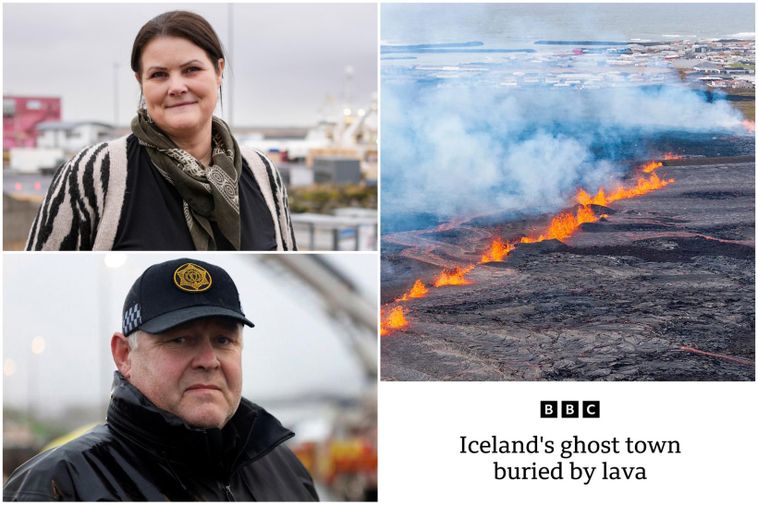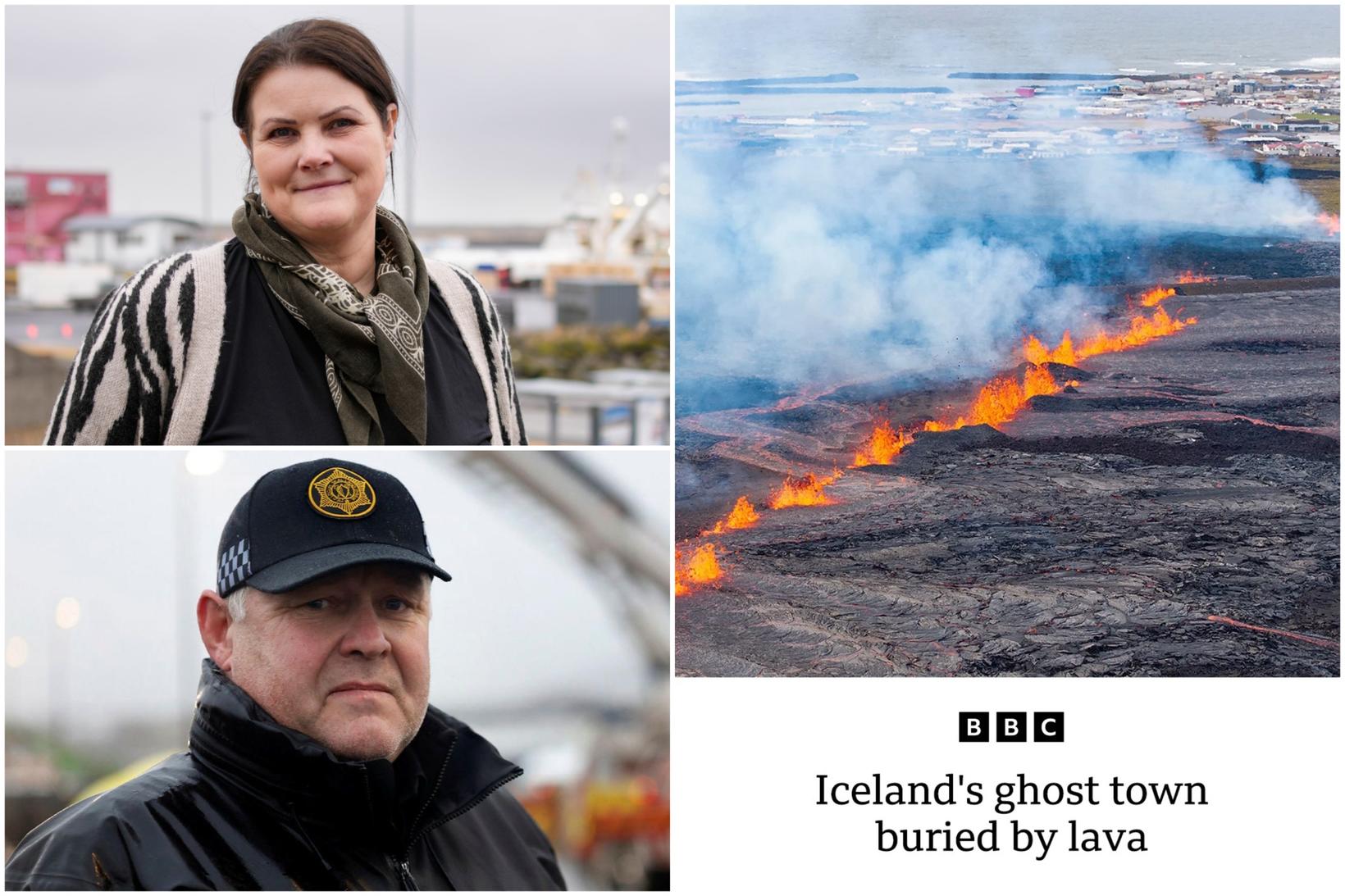The BBC has come under heavy criticism from residents of Grindavík after publishing a story under the headline “Iceland’s ghost town buried by lava.”
In comments on the BBC’s Facebook page — where the article has been shared several times — many Icelandic and foreign readers point out that the information presented is misleading and, in some cases, plainly incorrect.
The article discusses Grindavík in the aftermath of the volcanic eruptions on the Reykjanes Peninsula in November 2023, claiming that the town is “essentially a ghost town” and that visitors can now join organized tours through the town buried under lava.
“A sad example of reporting”
Ásrún Kristinsdóttir, chair of the Grindavík town council, says it is disheartening to see such a major media outlet spread false information about a town that is already struggling.
“This is one of our main challenges right now — helping people understand that life here goes on as normal. Hundreds of people come to work in Grindavík every single day,” she said.
She added that news coverage like this harms not only Grindavík but the whole country, potentially damaging Iceland’s tourism industry.
Kristinsdóttir said it remains unclear how the town will formally respond, though the issue was discussed at a recent town council meeting. She also pointed to the town’s new website, VisitGrindavik.is, which aims to provide accurate information about the community.
“The town is full every day”
Hjálmar Hallgrímsson, chairman of Grindavík’s executive council, echoed Kristinsdóttir’s concerns, saying the report could damage the town’s image.
“This is unbelievable journalism,” he said, noting that of the nearly 1,200 houses in Grindavík, only about 80 are uninhabitable — roughly seven percent.
He emphasized that the town is full of residents and visitors every day, and that it is deeply irresponsible for a major outlet like the BBC to imply the town is nearly deserted.
“Disgustingly wrong”
Many residents still live in Grindavík, and the town is by no means abandoned, contrary to what the article suggests.
“This is disgustingly wrong. Grindavík is not buried under lava. People live and work there. It’s a town, not a tourist attraction,” one Facebook user wrote.
Several others expressed similar disappointment, calling the BBC article deeply misleading and an example of fake news.

